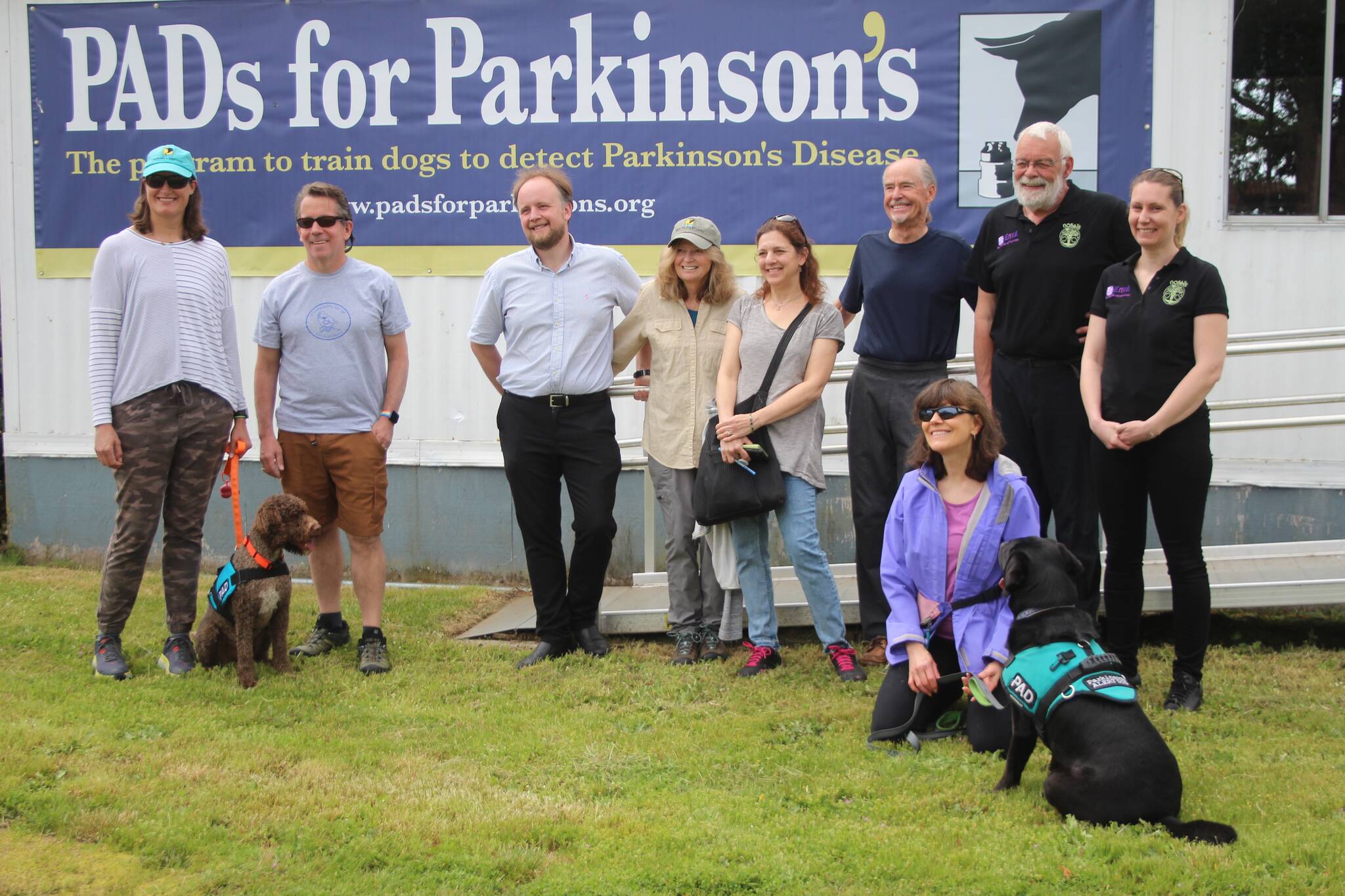Dogs were wagging their tails with excitement June 2, as the volunteers and staff of PAD’s for Parkinson’s, a local non-profit that trains dogs to detect Parkinson’s Disease, welcomed guests Dominic Grandjean and Capucine Gallet from the National Veterinary School of Alfort, France, as well as renowned science writer and author Jennifer Holland, whose books include the series “Unlikely Friendships.”
“We want to add a Parkinson’s program, and this was one of the few organizations that do it,” said Dominic Grandjean, when asked how they had heard of PADs. Currently, Grandjean and Capucine Gallet have been training dogs to detect COVID and long COVID.
“Capucine is responsible for the dog training programs, and we are very lucky to have her,” Grandjean said.
PADs began training dogs over six years ago for those unfamiliar with the organization and has trained more than 25 dogs to successfully select Parkinson’s samples from healthy human control samples with an accuracy rating of 90% or higher. The dogs attend training four days per week and are homed locally by their owner and handlers. The nonprofit program is staffed by a director of canine detection and a host of volunteers.
According to Grandjean, training dogs to detect illnesses like Parkinson’s or Covid face similar issues. Finding enough quality positive samples of the disease to train the dog and getting the number of dogs needed to be trained in a short period of time. In order to do a mass detection for COVID, thousands of dogs trained quickly and efficiently, and hundreds of virus samples per day would be needed.
Once the dogs are trained, “no problem,” Grandjean said. Grandjean added that he sees great potential in the concept, however, and envisions dogs being used to detect COVID in nursing homes should the pandemic continue.
The pups were also excited to meet the author of the “Unlikely Friendships” series.
“I’m currently working on a National Geographic book about dog intelligence, their olfactory intelligence, and taking a look at all working dogs,” Holland said.
Holland’s book is not due out until 2024. She is gathering information about working dogs in all areas and originally came to the San Juans to spend time with Wild Orcas’ science and research director Dr. Deborah Giles. Giles has been working with dogs, such as her own, Eba, to detect whale scat, which researchers then collect and study.
Holland was fortunate enough not only to observe the dogs at work guiding the boat toward whale poop but was able to see both orcas and humpbacks in the Salish Sea as well.
Holland was originally unaware PADs was on the island, but immediately set up a visit.
Having written countless books and articles animals, Holland says she is deep enough in it she is not so much surprised by what is being learned about the canines, as much as she is impressed by how sensitive and intelligent the animals are.
This book, Holland said, will touch on canine’s emotional, social to even olfactory intelligence, and what it means to be smart from a dog’s perspective rather than a human one.
“I want to highlight we can be better dog owners, give them back some of their dogginess and accept them as another species,” Holland said.



